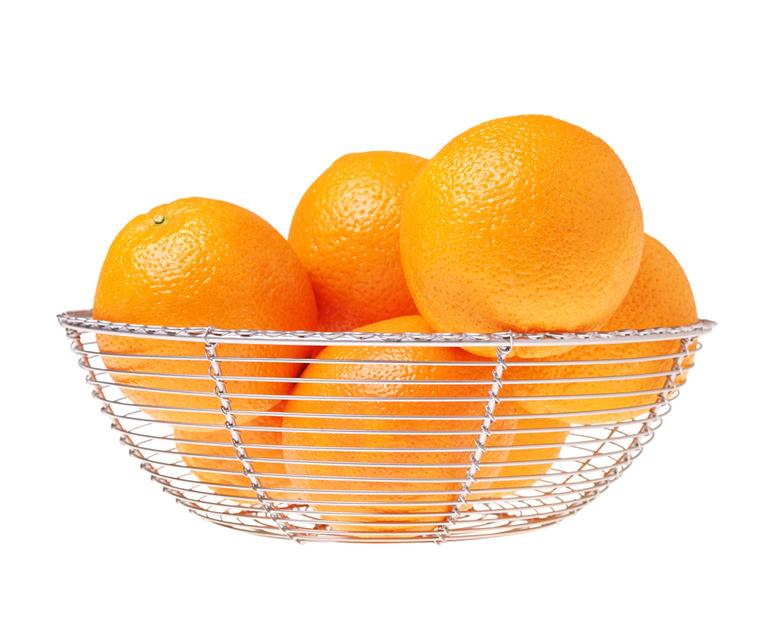Which Fruit Will Not Ripen When Picked?
As fruits ripen, they become sweeter as starches are converted to sugars. The process is stimulated by the phytohormone ethylene. Some fruits will continue to ripen after they are harvested, such as bananas and pears. These fruits are called climacteric. However, some fruits stop ripening when they are removed from the plant, and these are called non-climacteric. They are not induced to further ripen by ethylene and will begin to deteriorate, so they should be placed into cold storage as soon as possible.
Citrus Fruits
Step 1
Citrus (Citrus spp.) are fruits that grow on small to medium-size trees with dense foliage in U.S. Department of Agriculture plant hardiness zones 9 through 11. The trees are evergreen, and the creamy white flowers are sweetly fragrant. Citrus includes some well-known fruits such as oranges, grapefruit, tangerines, lemons and limes and also some lesser known fruits such as kumquats and tangelos. The fruits are acidic and a great source of vitamin C. Although many people do not refrigerate oranges, they'll last longer when refrigerated.
- As fruits ripen, they become sweeter as starches are converted to sugars.
- However, some fruits stop ripening when they are removed from the plant, and these are called non-climacteric.
Small Berries and Fruits
Step 1
Small berries and fruits have a very short shelf life. Often, these small berries are easily crushed or bruised, inviting rot. They should be inspected thoroughly when purchasing to be sure rot hasn't already begun, and they should be refrigerated as quickly as possible. Blackberries (Rubus spp.), hardy in USDA zones 6 through 8, raspberries (Rubus idaeus and others), hardy in USDA zones 2 through 9, strawberries (Fragaria spp.), hardy in USDA zones 5 through 8, grapes (Vitis spp.), hardy in USDA zones 4 through 9, blueberries (Vaccinium spp.), hardy in USDA zones 3 through 8, and cherries (Prunus avium), hardy in USDA zones 5 through 8, are all non-climacteric fruits.
- Small berries and fruits have a very short shelf life.
- hardy in USDA zones 5 through 8, grapes (Vitis spp.
- ),
Tropical Fruits
Step 1
A number of tropical fruits besides citrus do not ripen after they have been picked. Pineapples (Ananas comosus), hardy in USDA zones 10 through 11, pomegranates (Punica granatum), hardy in USDA zones 8 through 11, lychee (Litchi chinensis), hardy in USDA zones 10 through 11, and star fruit (Averrhoa carambola), hardy in zones 10 through 11, are all non-climacteric. They should be as ripe as possible at the time of purchase and immediately refrigerated when possible.
Garden Fruits and Vegetables
Step 1
Cucumbers (Cucumis sativus), hardy in USDA zones 4 through 11, bell peppers (Capsicum annuum), hardy in USDA zones 10 through 11, summer squash and pumpkin (Cucurbita spp.), hardy in USDA zones 9 through 10, and eggplant (Solanum melongena), hardy in USDA zones 4 through 10, are commonly called vegetables, but botanically they are fruits. Watermelons (Citrullus vulgaris) are hardy in USDA zones 10 through 12. All bear fruits that are non-climacteric. These fruits and vegetables are often grown outside their USDA zones as summer annuals.
- A number of tropical fruits besides citrus do not ripen after they have been picked.
- hardy in USDA zones 9 through 10, and eggplant (Solanum melongena), hardy in USDA zones 4 through 10, are commonly called vegetables, but botanically they are fruits.
